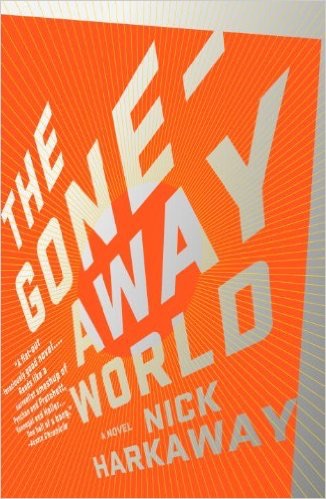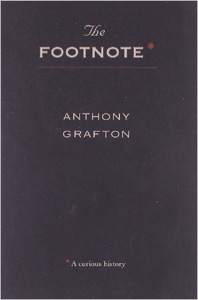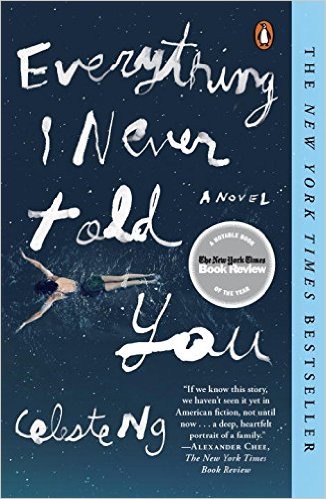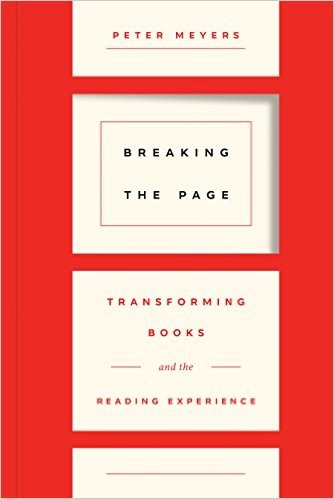When I split an infinitive, God damn it, I split it so it will stay split. – Raymond Chandler, Selected Letters
by Nick Harkaway
A dazzling and delightful book about a world gone wrong. In the present, we’re part of a freelance, world-saving mercenary company that’s driving hell-for-leather through bizarre dangers to extinguish an industrial conflagration that imperils the world. In the past, we’re an orphan who is adopted by a cool older brother named Gonzo and who is taken into a strange California suburban dojo, the Order Of The Silent Dragon. We always know these threads will merge, but the actual terms of the merger are metaphysically unexpected and unexpectedly metaphysical.
Harkaway is the son of John Le Carré and acknowledges Balzac, Dumas, and Conan Doyle as influences. I think this book may be overlong, but it’s very well written.
Anthony Grafton on annotation.
T. S. Eliot wrote in the margin of his copy of Logical Investigations, formerly owned by Edmund Husserl:
Above all there must be cake.
Notes from James Fallows and others on The Way We Read Now and related topics in the wake of Vannevar Bush’s classic popular science article from The Atlantic, “As We May Think,” which lots of people consider the origin of hypertext. (I think it all starts with Nelson’s Computer Lib/Dream Machines, which explained what Engelbart’s AUGMENT was trying to do and what Bush’s imagined machine could actually accomplish, and that Bush only became important in the Reagan years when Computer Lib seemed too far left. But I’ve been arguing this for years and have, it seems, convinced no one. See also Murray Leinster’s “A Logic Named Joe,” published a few months after Bush’s piece, which foresees such problems of the Web as kids reading about sex and angry people getting technical advice they’d be better off without.
I’ve not yet read Trollope’s The Way We Live Now, incidentally, but I can heartily recommend Meg Rosof’s wonderful How I Live Now. There’s a lot to read.
Anthony Grafton, The Footnote.
The combined precision and obscurity of the Italian citation code compels admiration – especially in light of the practical difficulties that confront any Italian scholar who wants to read a given work before not citing it.
Brent Simmons has a cryptic but important post on the dangers of social media: When The Weapon Was Pointed At Me.
When Brent had his first big success, Dave Winer was there to warn him.
I should have remembered Dave Winer’s words to me from 2003, after I released NetNewsWire 1.0. I’m paraphrasing, not quoting, but they were something like this: “You’re the golden boy now. Enjoy it. They’ll turn on you later.”
This is bad for everyone – kids, especially, should not be permitted to risk editing at sites like Wikipedia – but it’s especially bad for software creators. We’ve internalized so thoroughly the notion – mistaken but partly true – that software must be intuitive and its design process should be user-centered, that the roar of the crowd and the howling of the mob both mean more than they should.
For the next six months after the pile-on I asked myself every day if I should just quit the industry. Seriously. Every day, and especially every night. I came very close.
I learned a few things. I can’t count on the public to have my back. Forget it.
This is another reason why we need better software criticism. When it comes to the arts, the crowd is seldom wise and always unreliable. In the sciences, the crowd knows next to nothing. Nastiness and ignorance are a bad combination, but one that’s become very, very familiar in social media.
I’m increasingly wondering, too, whether my friend’s speculation that Gamergate is a firestorm – a small number of vociferous people – is in fact the case. I recently wrote a modest rejoinder on a Wikipedia talk page -- a reply to a reply, and nothing I hadn’t written on that page before. It seems to have caught someone’s eye overnight: a bundle of hostile tweets, a 200-comment thread at Gamergate World Headquarters – and who knows what else?
It’s the mirror world of an Art World, the destructive, deformed mockery of something like Fluxus or Futurismo. Maybe it all is a handful of boys in a handful of basements, and an outer circle who like to watch.
Speaking of Philip Werner and his SectionHiker.com, don’t miss The Best Year Of My Life.
Gamergate has been comparatively calm lately, perhaps because school is back in session, perhaps because one of its most prolific advocates was compelled to give us a few months’ respite.
I asked an Old Wiki Expert, a veteran of the very first Wiki wars, what he thought of the whole sorry Gamergate affair. One suggestion he offered was striking: might Gamergate be much smaller than we think? Sure, plenty of people could be sitting at home and nodding, but how many are actually participating in Gamergate actions? It might all be the work of a handful of people, posting all over the place.
Meanwhile, Umaire Haque speculates that persistent abuse and nastiness is killing Twitter, Reddit, and the rest of the social web.
But I’ve never been to a town square where people can shove, push, taunt, bully, shout, harass, threaten, stalk, creep, and mob you…for eavesdropping on a conversation that they weren’t a part of…to alleviate their own existential rage…at their shattered dreams…and you can’t even call a cop.
These companies think they’re in the business of selling ads, but the unpleasantness is driving everyone away. It’s a sorry mess. Thanks, Philip Werner!
Columbus Day Weekend is a big deal in New England, not least because it’s leaf season. Lots of people driving about, staring at leaves and covered bridges and enjoying the weather, because winter is coming.
It’s great to run into a place that remembers it’s in the hospitality business. The Downtown Grocery in little Ludlow Vt. is terrific. We had lamb hash (duck-fat roasted potatoes, root veggies, a terrific jus lié) and a nice bitter red ale; a very fine lunch. The kitchen crew appeared to be having an absolute blast.
Also very tasty: Popolo is Bellows Falls, in the lobby of an old hotel that still has a publicity print for the Canadian Pacific Railroad hanging over the mantlepiece. Oh, the places you’ll go! And there was nothing wrong with the lobster ravioli.
Also grand: the Big Buzz Chainsaw Carving Festival.
by Celeste Ng
“Lydia is dead. But they don’t know this yet.” That’s the beginning of this fascinating new novel, a mysterious story that is not a mystery.
How well do we really know anyone? After her body is found in the nearby suburban lake, Lydia’s mother takes refuge in the bedroom of her 11th-grade daughter. She sees the row of diaries on the bottom bookshelf, the diaries that have been her annual Christmas present, ever since Lydia was five years old. She does the unthinkable and pries open the lock of Lydia’s last diary.
It is blank. They all are blank. Lydia’s diaries have been a family ritual for more than a decade, and she has never written a single word.
This is a tragedy, a delicate construction of small lies and casual misunderstandings that cause spreading disaster, a disaster that seemingly could be averted at any moment but that no one can stop.
by Nick Harkaway
The tree of nonsense is watered with error, and from its branches swing the pumpkins of disaster. – Nick Harkaway, The Gone-Away World
by Peter Meyer
We’ve been thinking about electronic books, and what comes after them, for decades. We’ve got lots of important (albeit difficult) thinking about the nature and practice of reading – Barthes, Derrida, Bolter, Landow, and much else. We’ve got lots of invaluable research on actual reading practice with actual ebooks, much of it capably reviewed by Cathy Marshall in her Reading And Writing The Electronic Book. Little of this body of knowledge finds its way into this book, and the book provides almost no guidance to those hoping to learn more than it contains.
Peter Meyer loves books, but when he talks about the sorts of books he reads, his interests do not seem notably broad -- memoir, thrillers, history of science, anthropology, cookbooks -- and his reading style apparently relies heavily on skimming. He’s an inspiring graphic designer and some of his ideas for implementing graphical tables of contents and overviews – a concept introduced in Intermedia (van Dam, Meyrowitz, Yankelovoch, Landow) back in the mid-1980s -- look great. He’s big on reader’s dashboards; on the one hand, his dashboards look nicer than the sort of thing people have been doing in Tinderbox for the past decade, but then, those Tinderbox dashboards actually work.
In one chapter, Meyer (rightly) eviscerates the design of front matter in the eBook implementation of the elegant Maine Summers Cookbook. What he overlooks is the purpose of the elegant design in the print edition. That purpose, simply, is to sell the book, to coax the shopper in the bookstore to plunk down $30. If matching the blue of the endpaper to the blue of the table of contents convinces the reader that “care has been taken here, and the authors, like you, have sophisticated good taste,” then that helps achieve the goal. Ebooks aren’t sold in stores, they don’t have to compete for attention on the shelf, and by the time the reader is browsing through an ebook, the sale is pretty much made: they’re kicking the tires or checking their wallets. Design serves a purpose, the purpose of cookbook design is to sell the book, and for ebooks that purpose is best addressed on the Web page, not between the virtual covers.
Meyer adores Christoph Niemann’s Petting Zoo. So do I. I doubt it's a model for the future of books, though there’s a trace of Petting Zoo in The Sailor’s Dream. This leads to a focus on books for young children, books with sound tracks, books that have something
even greater than these individual bleeps and warbles. How the app’s sounds – its action-specific effects, its ambient background – feel integrated with the visual composition are key to the pleasure it delivers.
If I follow this – a misfortune has happened to this sentence, but we can make allowances – this is orthodox McLuhan, except McLuhan would have noticed that we’ve stopped talking about a book and begun to talk about a visual composition with a sound track, which may be a very good thing indeed, but whatever it is, it’s not going to be teaching you about partial differential equations. Julian Opie’s moving electronic portraits are fascinating, but they’re not books.
“I choose books in a fairly pell-mell fashion,” Meyer explains. I can imagine people – Nick Hornby, say, or Michael Dirda – choosing books in a way that recalls a bustling upscale thoroughfare, but I think Meyer really means “haphazard” or “helter-skelter”. “Fairly” doesn’t buy us anything, and “fashion” isn’t quite right, either. “I buy a lot of books” might have served.
Meyer isn’t particularly interested in links. I am. That’s a disappointment. The disinterest isn’t argued or discussed, so there’s not much to say.
This is a crippled book, a book whose author has compressed and simplified ideas until they are nearly unrecognizable. Some of the ideas are interesting, though like the Reader’s Dashboard we might learn more by building and using the thing than by merely talking about it. Some ideas are small and esoteric: yes, front-matter in eBooks is a mess, but the people who can do something about that are a small professional fraternity; there’s not much point in complaining to us, especially not when you’re a publishing consultant and you can complain to the people in a position to address the problem.
Many ideas in Breaking The Page will be familiar to people who know the literature. The literature isn’t always accessible and integrative reviews are always very welcome, but it would help to know where things come from and -- more important still -- to engage previous writers rather than simply erasing them. Instead of mixing McLuhan with some warmed-over Bolter, why not roll up your sleeves, show us what the master said, and show us why the master was wrong?
Former Green Bay Packers coach Mike Sherman is coaching a small Cape Cod high school this year. In a nifty piece for SI, Emily Kaplan captures what that’s like:
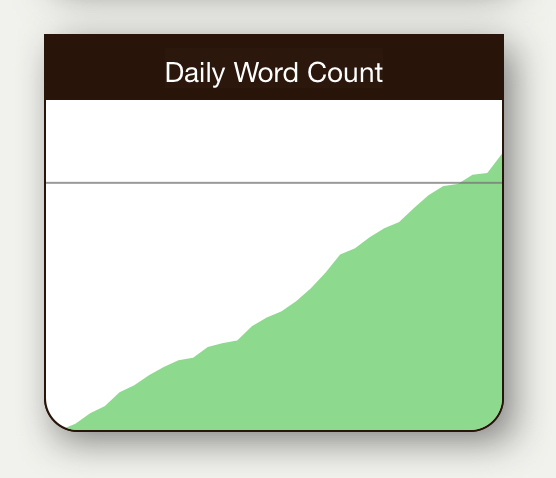
Well, that’s something, anyway.
I said, “I’m going to drive this car until the wheels fall off.” OK: the wheels fell off. Only one wheel, technically, and only partly off. Still, not a good thing at all. Damn.
It’s nice to reach the target on the draft of Getting Started With Hypertext Narrative on the first of the month. (Note the nice new target feature in Tinderbox plots. Tiny steps.)
